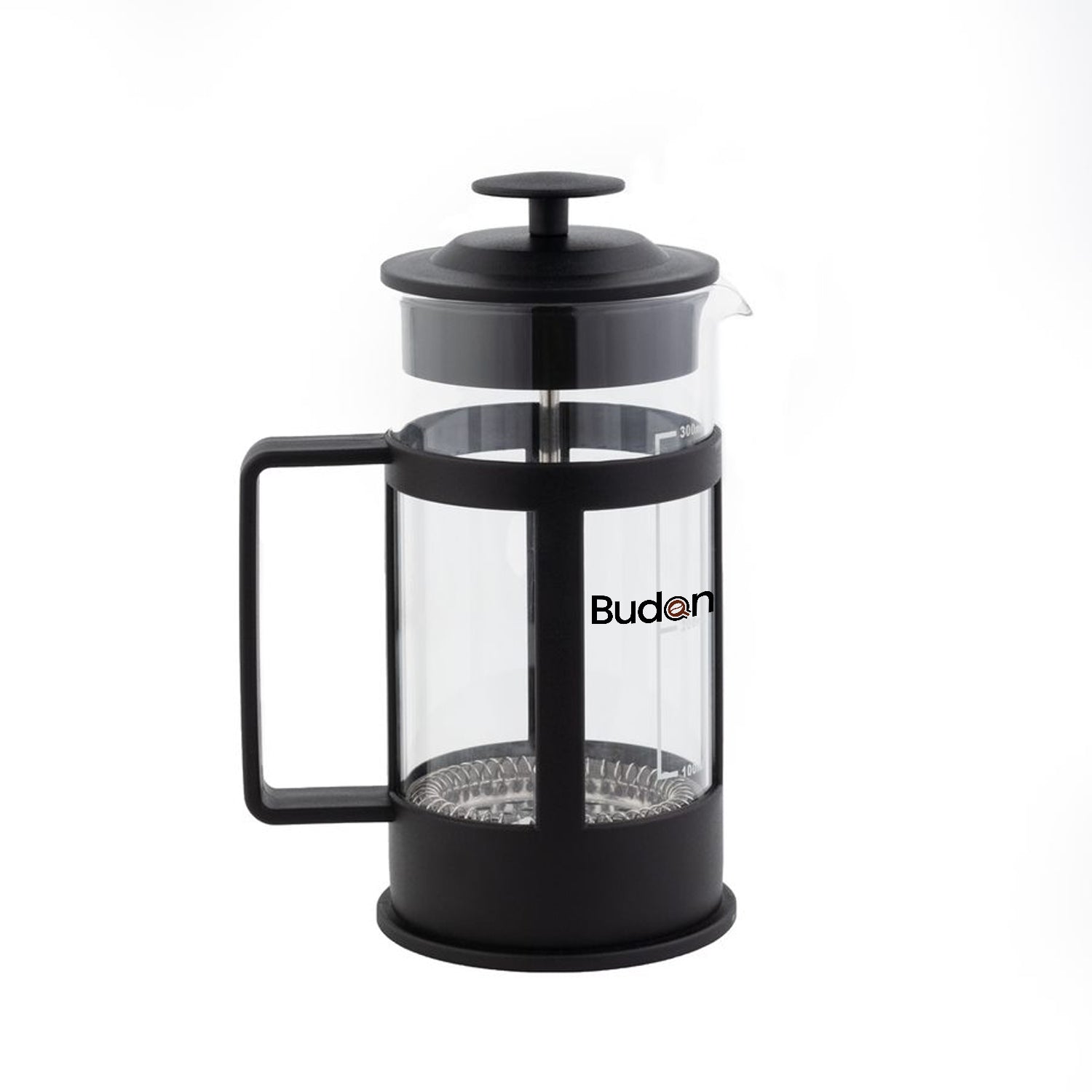There’s something undeniably special about brewing coffee with a French press coffee maker—the rich aroma, the hands-on process, and the deep, full-bodied flavour.
As easy as it is to use French Press, there are times when the brew goes wrong. Maybe your coffee turns out too bitter, too weak, or just not as satisfying as you’d hoped. You are not alone—many coffee lovers make common French Press mistakes.
The good news? They are all fixable! Let us walk through the most frequent errors and how to perfect your brew every single time.
Mistake #1: Using the Wrong Grind Size
Many people use coffee that’s too fine or too coarse. Fine grounds lead to over-extraction, making your coffee overly bitter. On the other hand, overly coarse grounds can lead to under-extraction, resulting in weak, watery coffee.
How to Fix It:
- Use a coarse grind, similar in texture to sea salt.
- A burr grinder is your best friend—blade grinders tend to create inconsistent grind sizes.
- If you are using a Hario French Press, pair it with a quality grinder for even consistency.
Mistake #2: Not Measuring Coffee & Water Properly
Eyeballing the coffee-to-water ratio might seem convenient, but it often results in coffee that’s too strong or too weak.
How to Fix It:
- Stick to the golden ratio: 1 gram of coffee per 15 grams of water.
- A digital scale ensures precision every time.
- If using an Espro French Press, check its recommended measurements for the perfect brew.
Mistake #3: Using the Wrong Water Temperature
Boiling water burns coffee, while water that’s too cool leads to under-extraction and a flat taste.
How to Fix It:
- Ideal water temperature: 90°C - 96°C.
- No thermometer? Let boiled water sit for 30 seconds before pouring.
- The Budan and Hario French Press retains heat well, but pre-warming helps maintain temperature stability.
Mistake #4: Rushing the Brewing Process
Pressing the plunger too soon means under-extracted, weak coffee, while leaving it too long results in bitterness.
How to Fix It:
- Brew for 4 minutes—no more, no less.
- Set a timer to avoid guesswork.
- When using a French press coffee maker, ensure an even steep before plunging.
Mistake #5: Stirring Too Much or Too Little
Over-stirring disrupts the coffee bed, leading to cloudy, overly bitter coffee. Not stirring at all can lead to uneven extraction.
How to Fix It:
- Stir gently once after adding water—don’t swirl aggressively.
- Use a wooden or plastic spoon to prevent heat loss.
Mistake #6: Plunging Too Hard or Too Soft
Forcing the plunger down too fast stirs up fine particles, making your coffee muddy. Being too slow lets the grounds settle, leading to uneven flavour.
How to Fix It:
- Apply gentle, steady pressure when plunging.
- If there’s too much resistance, your grind might be too fine.
Mistake #7: Leaving Coffee in the French Press After Brewing
Once coffee has finished brewing, leaving it in the French press coffee maker leads to continued extraction, making it bitter.
How to Fix It:
- Immediately pour coffee into your mug or a thermal carafe.
- If you plan on having a second cup later, store it separately.
Mistake #8: Not Cleaning Your French Press Properly
Coffee oils and old grounds build up over time, affecting the taste of your next brew.
How to Fix It:
- Disassemble the French press after each use.
- Rinse thoroughly with warm water and mild soap.
- Deep clean once a week to remove any lingering residue.
20 FAQs on Common French Press Mistakes
FAQs on Common French Press Mistakes
1. Why does my French press coffee taste too bitter?
Bitter coffee is often the result of over-extraction. This can happen if you steep the coffee for too long, use water that is too hot, or grind the coffee too finely. The ideal steeping time is 4 minutes, and the water temperature should be around 90-96°C. A coarse grind is recommended for French press brewing.
2. Why is my French press coffee too weak or watery?
Weak coffee usually results from under-extraction, which can happen if you use too little coffee, grind the beans too coarsely, or steep for too short a time. The recommended coffee-to-water ratio is 1:15 or 1:16 (e.g., 30 grams of coffee for 450-500 ml of water). Also, ensure you steep the coffee for the full 4 minutes.
3. Should I use boiling water in my French press?
No, boiling water (212°F/100°C) can scorch the coffee grounds and cause excessive bitterness. Let the boiled water cool for about 30 seconds before pouring it into the French press to maintain an optimal temperature of 195-205°F (90-96°C).
4. Why does my French press coffee have a muddy or sludgy texture?
If your coffee has too much sediment, it could be due to using a grind that is too fine or a faulty mesh filter. Always use a coarse grind to minimize the amount of fine coffee particles passing through the filter. Additionally, ensure your plunger’s mesh screen is intact and properly fitted.
5. How can I prevent my coffee from tasting too acidic?
Overly acidic coffee often results from under-extraction, which happens when the coffee is not steeped long enough or if the grind is too coarse. Try adjusting your brewing time to the recommended 4 minutes and slightly increasing the grind size if needed.
6. Do I need to stir my coffee while brewing in a French Press?
Yes, stirring the coffee after pouring hot water helps ensure even saturation of the grounds, leading to a balanced extraction. Use a wooden or plastic spoon to avoid damaging the glass or metal of the French press.
7. Why does my French press coffee taste stale or off?
Stale coffee can be due to using old or pre-ground coffee that has lost its freshness. Always use freshly ground coffee beans and store them in an airtight container away from light, heat, and moisture.
8. Why does my coffee have an oily or greasy film on top?
Oily coffee can result from using low-quality or over-roasted beans. Additionally, failing to clean your French press properly after each use can lead to residual coffee oils building up. Regularly wash all parts of your French press with warm, soapy water.
9. Why is it difficult to press the plunger down?
If pressing the plunger requires excessive force, your grind may be too fine, causing clogging. Use a coarse grind to prevent this issue. Also, check the filter for coffee buildup or misalignment.
10. Can I make cold brew with a French press?
Yes! To make cold brew, use a coarse grind, a 1:8 coffee-to-water ratio, and steep it in the refrigerator for 12-24 hours before plunging.
11. How often should I clean my French press?
Clean your French press after every use to prevent the buildup of coffee oils and residue. Disassemble all parts and wash them with warm, soapy water. Occasionally, deep clean with baking soda or vinegar to remove stubborn stains.
12. Should I decant my coffee after pressing?
Yes, leaving coffee in the French press after plunging can lead to over-extraction and bitterness. Pour it into a carafe or mug immediately after plunging for optimal taste.
13. Can I use pre-ground coffee in a French Press?
While you can, it is not ideal. Pre-ground coffee is often too fine for a French Press and may lead to excessive sediment in your cup. Freshly grinding whole beans just before brewing ensures better flavor and consistency.
14. What’s the best way to dispose of used coffee grounds?
Avoid pouring them down the sink, as they can clog drains. Instead, compost them, use them as a natural fertilizer, or dispose of them in the trash.
15. How do I achieve a cleaner cup of coffee with a French press?
If you prefer a cleaner cup, try pouring your coffee through a secondary filter, such as a paper filter or fine-mesh sieve, to remove excess sediment.
16. Why does my French press coffee taste different each time I brew it?
Variations in grind size, water temperature, coffee-to-water ratio, and steeping time can all impact the flavor. Use a consistent method and measure ingredients carefully to achieve more predictable results.
17. Can I reuse coffee grounds for a second brew?
Reusing grounds for a second brew will result in weak and over-extracted coffee. For the best flavor, always use fresh coffee grounds for each brew.
18. Should I bloom my coffee in a French press?
Yes, blooming (pre-wetting the grounds with a small amount of water and waiting 30 seconds) helps release carbon dioxide from fresh beans, leading to better extraction and flavor.
19. Can I brew tea in a French press?
Yes, a French press can be used to brew loose-leaf tea. Simply steep the tea leaves in hot water and use the plunger to separate the leaves when ready to serve.
20. How do I prevent my French Press from breaking?
If using a glass French press, handle it carefully, avoid sudden temperature changes, and consider using a protective sleeve or opting for a stainless steel model for added durability.
Final Thoughts: Brewing the Best French Press Coffee
Perfecting your French Press coffee maker technique is all about small adjustments that make a huge difference. By avoiding these common mistakes, you’ll be able to enjoy a smooth, flavorful, and satisfying cup every time.
Ready to take your French press game to the next level? Check out the best French Press Coffee Makers here: Shop French Presses.


























